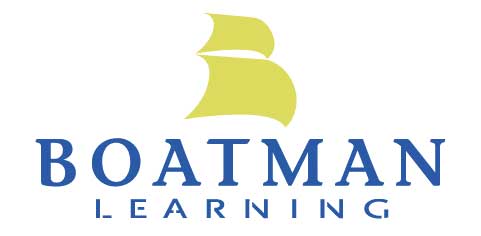A new generation of sellers and value creators is on the job today, and we have a golden opportunity to develop millennials into world-class sales leaders.
Based on my birth year, I am a member of Generation X, but I consider myself a generation-straddler because my siblings were born between 1955 and 1963, at the tail end of the Baby Boom. I’ve been an outside observer to both generations, and the topic of generations and the different ways in which they deal with their environments fascinates me. Being in the sales leadership development business, I naturally seek to apply my curiosity about generational differences to the realm in which I operate every day. I marvel at the achievements of millennials over their first several years in the professional sales workforce.
One of the important lessons I’ve learned so far is that if we sales leaders hope to get the best performance out of the people in our organization, we have to pay attention to how they view their work, how they are motivated, and what kinds of rewards will be relevant to them. That has always been the case, but it is particularly important with the generation of workers known as Millennials because they are so different from Generation X, for example.
In order to get to the answer about how to develop millennials into world-class sales leaders, I thought it would be instructive to play out a hypothetical conversation with a front-line, millennial sales manager to illustrate some of the key ways in which they look at work and selling differently. The answer to the “how” question is contained in this millennial sales manager’s answers, so pay close attention.
“Q: You’ve been in sales management for a couple of years, after a successful run as an individual contributor. Do you have a vision for how you’d like to see your career progress from here?
A: I do have a vision for what I’d like to be doing in the future. I am enjoying my role as a sales manager because there is so much variety in my work, in the people I am charged with leading, and the customers we serve. I need that variety in my work. I also want to be sure that I am contributing to something important, and it would be nice if I could contribute to something that really matters to me that also affords me some recognition along the way. I don’t care that much about title, necessarily, but I would like to be recognized as someone who has made an impact in an area that really matters, especially to our customers.
Q: Do you agree that every person in sales needs some form of reward for what they do to stay positive and motivated?
A: I agree with that, but I probably think of rewards differently than some of my more tenured colleagues. For me and my peer group, financial rewards are certainly important. That’s partially why we chose to be in highly incentivized sales roles in the first place. But ultimately what has more meaning to us is that we are doing work that has meaning. Give me work that has some clear and positive impact on my customers and on our market or our environment, and I will be all-in. I know some of the more tenured folks around here might say, ‘Give me more autonomy or freedom to do things my way,’ but that is not as important to me as doing something really valuable. Recognize me for my role in producing something of real value. That is what motivates me.
Q: What about your work environment? What kind of environment lends itself to maximum productivity, in your experience?
A: As a sales manager, I prefer to work with other bright, creative people who can figure out how to achieve an outcome, and it really doesn’t matter where they come from, how much experience they have, or anything like that. Productivity comes when people who care about an outcome can collaborate, share their talents and insights, and figure out how to achieve the desired outcome. Give me a team of sellers who are primarily outcome-focused and willing to share their resources and brain power with each other, and I will produce a winning team that exceeds its objectives. I know some of the more senior folks think we have too many rules around here, too many things that get in the way of productivity, but I understand why we have to have rules and processes. As long as they don’t stifle our creativity or contradict our best judgment as a team, rules and processes can be a really helpful part of our environment to channel our efforts effectively.”
Millennial sales leaders are already here, and we have an opportunity to help them prepare to address businesses challenges and opportunities that we can only begin to conceive of right now. The question is, “What will it take to equip millennial sales leaders who are in frontline management roles today to ensure they become highly effective Chief Sales Officers or revenue leaders three, five, ten years or more from now?”
In addition to addressing key questions about career progression, rewards, motivation, environment, and productivity, there are also some fundamental sales leadership skills to be learned, practiced, and developed over time. I’ve already covered that ground sufficiently in my book, The Cadence of Excellence: Key Habits of Effective Sales Managers. Shameless plug aside, if one wants to master developing millennials into world-class sales leaders, then you must find a way to synthesize the need to develop fundamental sales leadership skills with what is really important to this generation.
How your business goes about the development of millennial sales leadership talent is going to be a key driver of long-term differentiation. If you don’t have a plan for their development, then we suggest you take a hard look at what you will do to seize this golden opportunity to take today’s frontline stars to the next level.

